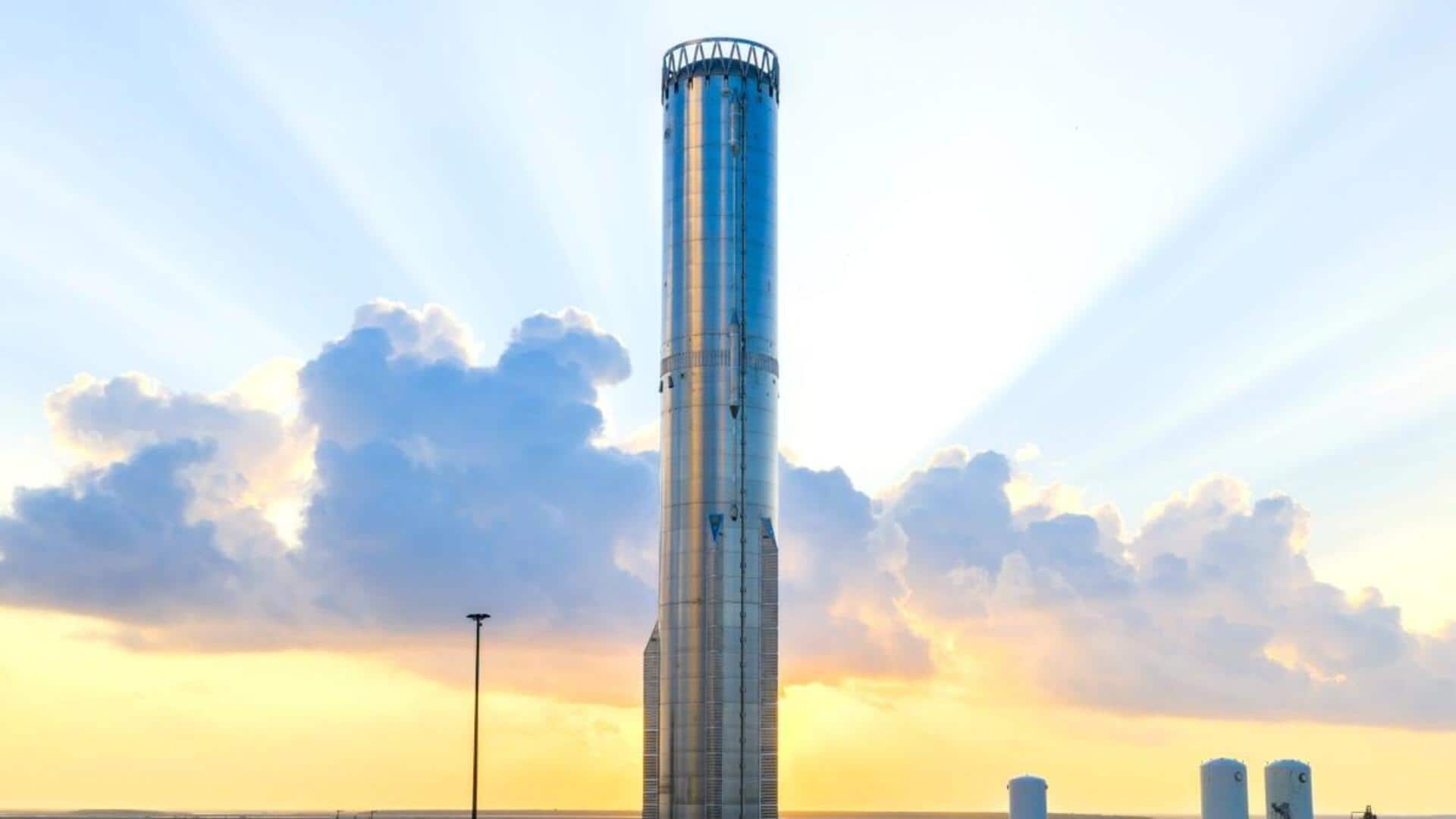
SpaceX's upgraded Starship rocket explodes during testing
What's the story
SpaceX's latest version of its Starship rocket booster, dubbed "Starship V3," suffered an explosion during testing in South Texas. The incident occurred early Friday morning (local time) and was captured by live streamers monitoring SpaceX's Starbase complex. Unlike previous fireball-type explosions associated with rocket development, this one blew out an entire side of the lower section of the booster while leaving the rest intact.
Mission
A key component of SpaceX's lunar and Mars missions
Starship V3 is the first major component of SpaceX's ambitious plan to reach the Moon and Mars. The company had flown its final design (V2) in October. The new version is expected to be bigger, more powerful, and more reliable than its predecessors. It will also have the capability to dock with other Starships in Earth's orbit, an essential requirement for future space exploration missions.
Uncertainty
Impact of the explosion on SpaceX's testing program
The exact impact of this explosion on SpaceX's future plans remains unclear. Any major delay in its testing program could jeopardize the company's overall strategy. SpaceX has a busy schedule for Starship in 2026, including demonstrating fuel transfer capabilities from an orbital "tanker" version of the rocket to Starship itself. This capability is crucial for NASA approval before crewed Moon missions can begin, which are reportedly planned for 2028.
Competition
Blue Origin accelerates mega-rocket development
The explosion has raised questions about SpaceX's progress on its Moon mission, with acting NASA administrator Sean Duffy criticizing the company for not moving quickly enough. This criticism has opened the door for Jeff Bezos's Blue Origin to potentially take over the contract. Blue Origin is speeding up development of its own mega-booster and recently launched its New Glenn rocket, delivering a commercial payload for NASA.